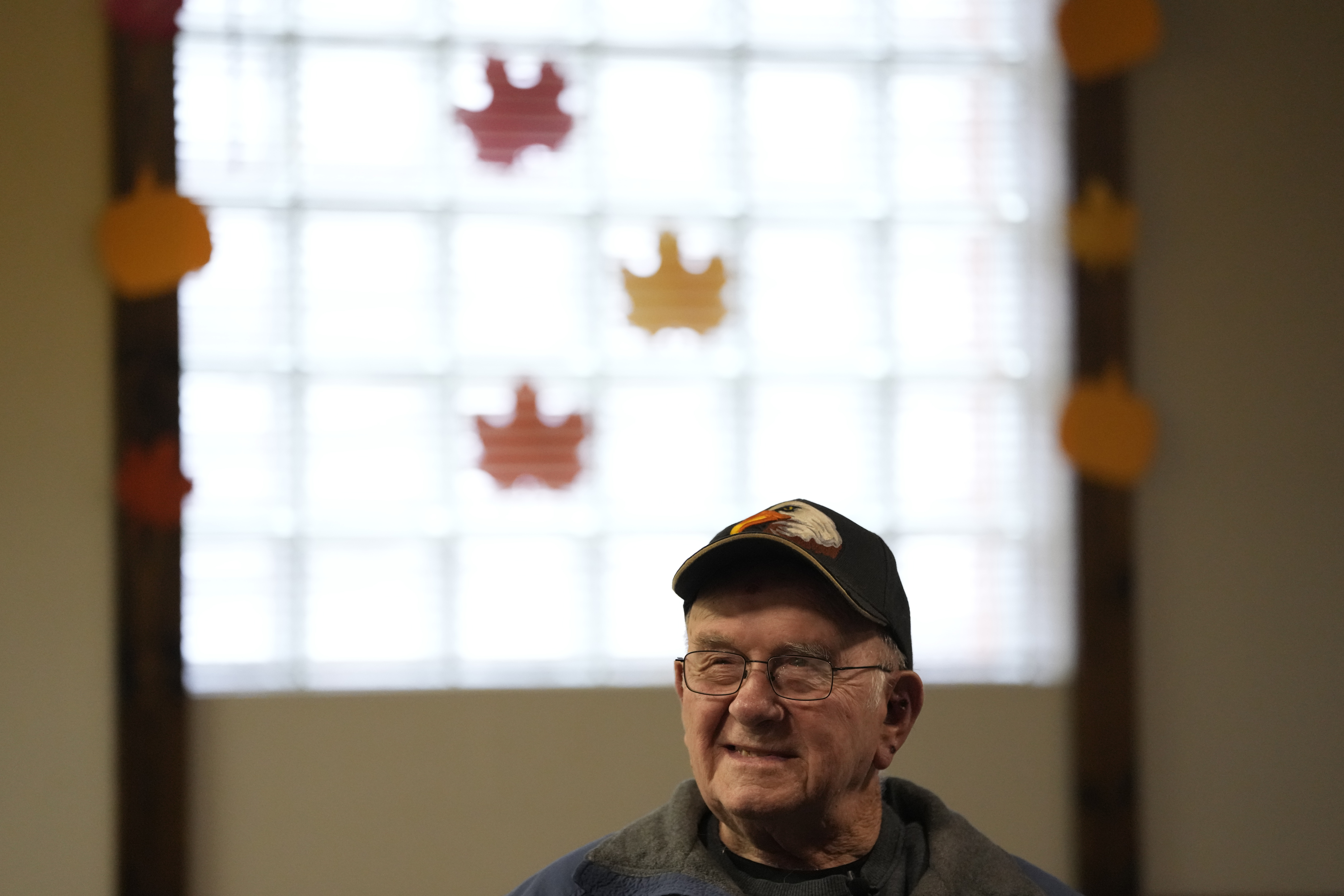Edward Moore Kennedy, Camelot’s youngest brother who never reached the White House but grew into the most accomplished legislator of his generation in the Senate, died Tuesday after a long battle with cancer.
Elected first in 1962, the 77-year-old Massachusetts liberal was rooted in the civil rights and Great Society battles of that decade, but his enduring strength was an ability to renew himself through his mastery of issues and the changing personalities of the Senate.
Nowhere was this clearer than in Kennedy’s early support of Barack Obama in 2008, when the young Illinois Democrat needed to establish himself against more veteran rivals for the White House. Kennedy not only campaigned for Obama but, at risk to his own health, opened the Democratic National Convention a year ago in Denver and returned to Washington repeatedly last winter to cast needed votes to move the new president’s economic recovery agenda.
The arc between their careers was striking. Obama was born just a year before Kennedy came to the Senate in November 1962, and the younger man’s election as president marked an historic fulfillment of the civil rights debate in which Kennedy took part as a freshman lawmaker.
There were bittersweet moments too as the senator’s illness took its toll.
August found Obama vacationing on Martha’s Vineyard, just across the water from the Cape Cod home where Kennedy lay ill. And the senator couldn’t fully participate in the great health care debate, which had been his passion for decades and remains central to Obama’s legislative agenda.
As moving about the Capitol became more difficult, Kennedy didn’t return after an appearance in April. And despite early hopes, he was never strong enough to be the player he wanted to be as a healthcare bill moved through the Senate Health, Education, Labor and Pensions Committee, which he chaired.
U.S. & World
Behind the scenes, Kennedy remained a force and had left in place a division of labor for the committee, which his old friend Sen. Chris Dodd (D-Conn.) helped to implement. Kennedy could typically work the telephones back to Washington for several hours a day as his energy permitted, and when the bill was finally reported July 15 after a marathon series of markups, he was described as almost giddy, laughing on the phone.
But Republicans complained that without Kennedy, Democrats were less willing to make the concessions needed for true compromise. As Senate action stalled before the August recess—and the national debate swung wildly at the grassroots level—Kennedy’s absence was felt more sharply.
This was one of the great ironies of the senator’s career. For decades, his liberalism and labor ties made him a butt of ridicule for the right. Former Senate Majority Leader Trent Lott (R-Miss.) first came to Congress literally campaigning against Ted Kennedy liberalism.
But over time, that standing allowed Kennedy to be an agent for compromise, an independent actor with a penchant for deal-making that even annoyed his own party leaders. This was true on education, immigration and health issues in the past decade. No other single Democrat could provide such political cover for others when he opted to move to the center.
Kennedy was helped by his famous name and liberal credentials but also by his roots in an older, more clubby Senate that has virtually disappeared in the less personal, more partisan politics of today’s Washington.
Kennedy was third behind only two other senators in history — the late Strom Thurmond of South Carolina and West Virginia’s Robert Byrd — in the length of his tenure. Byrd, an early rival, rose higher in the leadership, but neither he nor Thurmond matched Kennedy’s legislative output. And Byrd, who grew closer to Kennedy over time, proudly boasts of one title they share: the only two men in U.S. history elected nine times to the Senate.
“They stood for nine elections. No one else had ever done that,” said Richard Barker, the Senate historian. “Their seniority is off the charts.”
Always the showman, Kennedy delighted in the grand entrance. But with the lights fading on his career, he seemed genuinely in awe of what he was witnessing.
Civil rights had been a recurring, dominant theme his entire public life: from the voting rights debates in the ’60s, through the bitter school busing battles in his birthplace, Boston, in the ’70s, to, most recently, his stubborn pursuit of immigration reform — despite misgivings in both parties.
“It’s breathtaking just thinking about it,” he told POLITICO prior to Obama’s Inauguration. “Two centuries of our struggle for civil rights come down to this defining moment. ... Barack will be facing Abraham Lincoln and the sacred ground where Martin Luther King gave his famous ‘I Have a Dream’ speech. And just behind the Capitol will be the Supreme Court, which inspired the modern civil rights revolution with its desegregation decision 55 years ago. Unbelievable.”
Inauguration Day proved to be cold and a strain for Kennedy. He insisted on attending, sitting outside in the stands, reminiscing with Senate Majority Leader Harry Reid (D-Nev.). Soon after — at a luncheon for the president inside the Capitol — Kennedy suffered a seizure and was rushed to the hospital.
Nonetheless, he returned in February when Reid needed him for pivotal votes to advance the president’s economic agenda. He decided to sit out the final roll call — but only after his wife, Victoria, first called three Republican moderates, whose support was needed by Obama, to be sure that the bill would not fail without Kennedy’s vote.
It was classic Kennedy: trademark attention to personal details and persuasion. He always spoke of the Senate as something organic, fragmented but capable of coming together at historic moments.
His very early experiences — as the youngest son listening to his father plot his brother John Kennedy’s Senate bid in the ‘50s or years later, coming to the Senate himself as a newcomer at a time of huge change in the ‘60s — never left him. And this taught him, like a sports fan at a football game, to watch the whole field, not just the player with the ball.
It was not always easy. As a younger man, overshadowed by two bigger-than-life brothers, Kennedy seemed forever condemned to be the shallow young prince awaiting his place in the White House. His single run for the presidency in 1980 — when he challenged and then lost in the primaries to Jimmy Carter — was a dismal failure. As the nation shifted right, with Carter losing to Ronald Reagan, Kennedy was dismissed by many as a failed relic of the past.
He hurt himself further with a penchant for drinking and night life that better resembled Falstaff than Prince Hal. Many would never forgive him for the 1969 Chappaquiddick incident, in which he drove his car off a bridge on Martha’s Vineyard and his young companion, Mary Jo Kopechne, drowned. Twenty-two years later, he was severely embarrassed again after late-night carousing on Easter weekend with younger relatives in Palm Beach, Fla.
But in time, Kennedy discovered himself in the Senate, just as the Senate discovered more in him.
His career spanned almost a half-century of American history, and covering Kennedy was like a relay race, in which those who knew him best in the early years have long ago retired.
Education and healthcare initiatives will always be associated with his name, and the enactment this year of legislation authorizing the Food and Drug Administration to regulate tobacco is a Kennedy legacy. But this was also a senator who played a major role in airline deregulation, criminal code revisions and battles over the Supreme Court. Conservatives still resent him for his wholesale assault on Robert Bork’s nomination in 1987, and Kennedy is one of the few senators in history to see a former aide, Stephen Breyer, move up to the high bench.
Kennedy’s power base rested on three major committees: Judiciary; Health, Education, Labor and Pensions; and Armed Services, the first two of which he chaired at different points in his career. And he never lost an old-school style of politics, which set him apart in the increasingly impersonal Senate.
His booming voice filled the chamber when he spoke from his desk, always in the back row on the Democratic side and a gathering point over the years for younger members.
“He is the only senator who could bring tears to my eyes when I was presiding and he rose to speak on the floor of the Senate,” said former Democratic Sen. Bob Kerrey of Nebraska. “There is something in the tone of the voice and the undisguised passion.”
Few senators could better read a vote than Kennedy. Walking from the Capitol steps to his office in the Senate Russell building, he could dissect in a few short sentences who switched sides and why. He understood the chemistry of legislation, when the moment was ripe to bring forces together. And his personal skills were a huge asset for him in the long decades when Washington shifted away from the liberal activism of the 1960s.
Kennedy’s energy was legendary. He once jumped out of a car at a traffic light to corral a House Democrat on immigration legislation. Looking for some help on a defense issue — and discovering that the father of a House Appropriations Committee aide was ill in a facility on Cape Cod — Kennedy surprised the family by showing up for a visit.
Republicans such as Lott came to Congress railing against the Kennedy name, but they treasured small gifts from the senator — or kindnesses in the course of legislation.
Kennedy’s deal making could frustrate his fellow Democrats, as when he jumped ahead of party leaders in being willing to work with Republicans on prescription drug legislation in 2003. But he was also someone who risked his own political capital for a fight in which he believed, such as when he stood up for labor against a powerful Federal Express lobby in 1996.
Kennedy was riding high at the time, having been a major player in forcing concessions from the Republican leadership that summer and fall on minimum wage and health insurance coverage. To have walked away would have been the safer course, since there was almost no chance of prevailing given FedEx’s lobbying prowess — and fleet of corporate jets to help carry top Democrats as well as Republicans.
But instead, he stalled adjournment and forced a series of showdown votes on a pro-FedEx labor provision inserted during House-Senate negotiations on an otherwise noncontroversial authorization bill for the Federal Aviation Administration.
FedEx prevailed on a 56-39 roll call in which 10 Democrats joined 46 Republicans in overruling the Senate parliamentarian to keep the provision in the bill and send it on to the White House intact.
Lott boasted later that he had brought his old foe down a peg or two. But Kennedy walked off smiling, the true winner for many for having made the fight.




